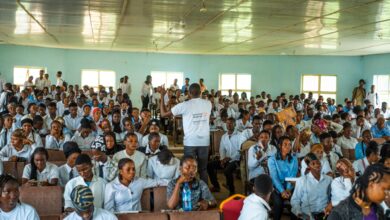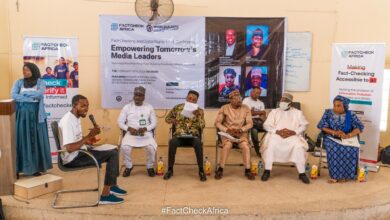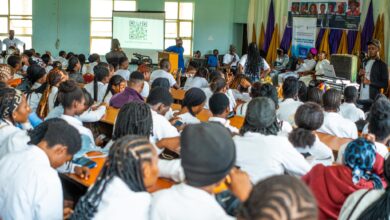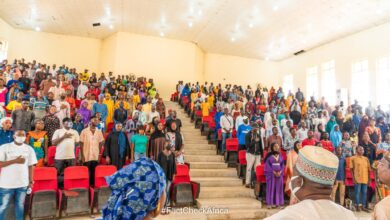FactCheckAfrica’s Sensitization on Misinformation and Fact-Checking Targets IDPs in Borno
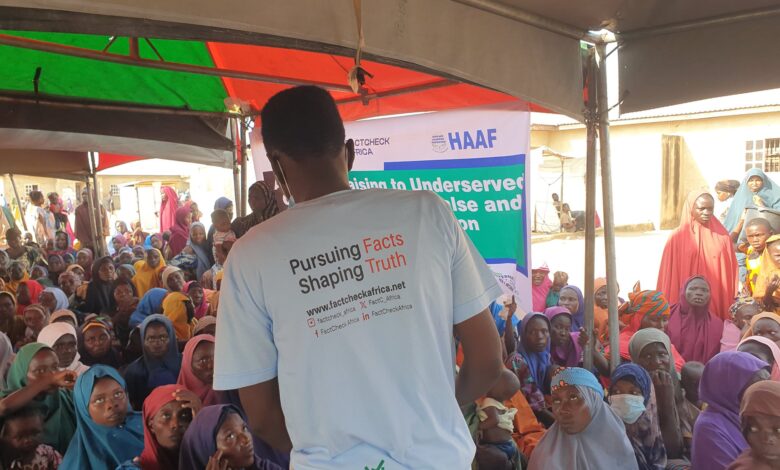
By Oluwaseye Ogunsanya
FactCheckAfrica has sustained its bid to combat the growing menace of misinformation by targeting internally displaced persons (IDPs) at the Gubio IDP Camp, Maiduguri, Borno State.
The initiative which is named ComFaMI Project (Awareness-raising to Underserved Communities to Combat False and Misleading Information) was carried out from September 29 to October 7, 2024, in collaboration with the Hope and Awareness Foundation (HAAF) and supported by the International Fact-Checking Network (IFCN).
The camp, home to flood survivors, saw a targeted initiative to educate participants, primarily women and adolescent girls, on the dangers of misinformation and equip them with techniques for fact-checking. The project aimed to address the critical issue of misleading narratives that had taken root within the camp.
Facilitators Shuaib I. Shuaib and Bukar Alhaji Kabu mobilized over 400 participants, including local security personnel. These participants, comprising women aged 30-50 and adolescent girls aged 20-25, represented some of the camp’s most vulnerable demographics.
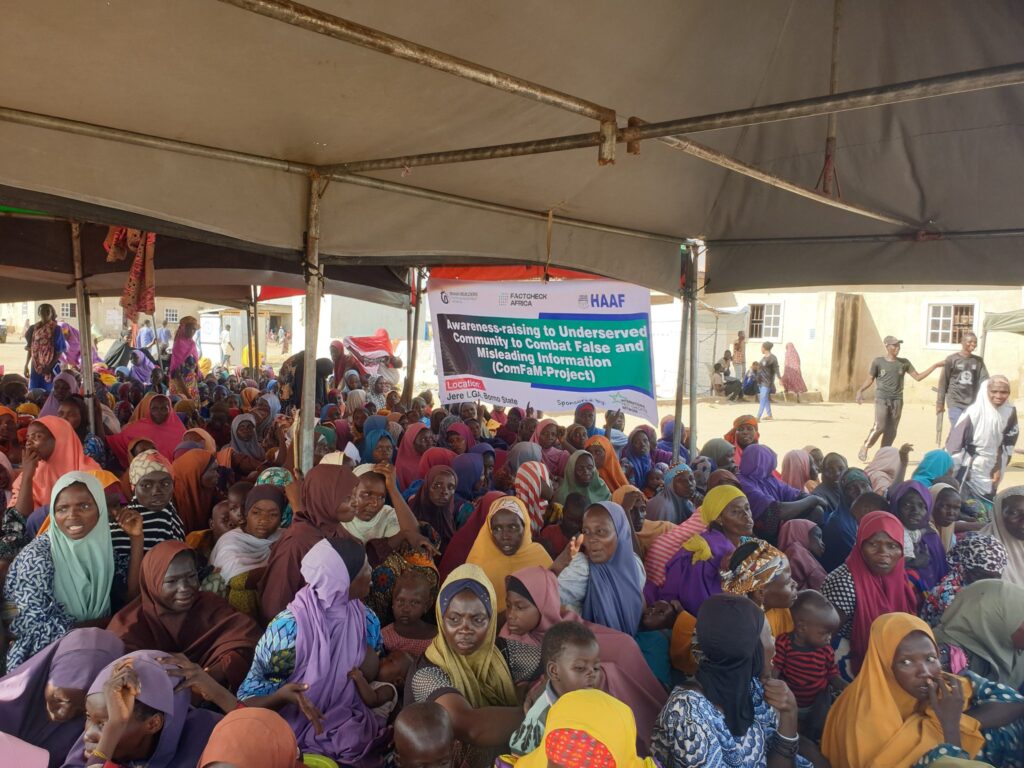
“We identified a disturbing narrative circulating within the camp, where displaced individuals were led to believe that government support could be accessed by offering money,” said one of the facilitators. “Our goal was to dispel such rumors and teach residents how to evaluate the credibility of information.”
The sessions underscored the importance of identifying credible sources of information. Participants were introduced to tools like MyAIFactchecker and advised to verify claims with local leaders before taking any action. Educational materials were distributed to reinforce these lessons, and local proverbs were used to contextualize the dangers of misinformation.
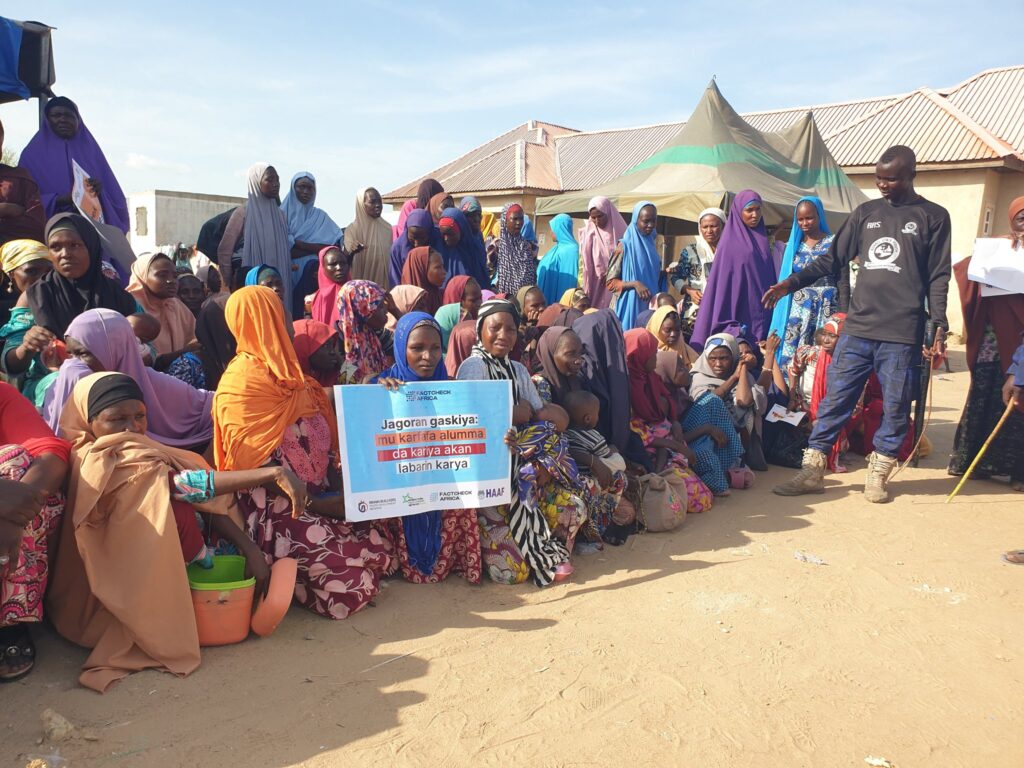
One notable outcome of the project was the launch of “TANTANCE LABARAI,” a collaborative radio programme designed to educate listeners on fact-checking techniques. Developed in partnership with local radio stations, the programme provides ongoing access to reliable information for camp residents.
Facilitators also used a community-based approach, consulting key gatekeepers, including local elders and NGOs, to ensure the programme’s success. Sessions were conducted in local dialects to overcome language barriers, and a live one-hour radio broadcast complemented the in-person sensitisation efforts.
Participants expressed their appreciation for the initiative, with many acknowledging a newfound understanding of how to discern credible information. Local security personnel also commended the project, highlighting its timeliness in addressing the vulnerability of women in the camp to misinformation.
However, challenges remain. “Ongoing rumors are difficult to dispel entirely,” noted a facilitator. “We also need to address issues like access to trusted sources and ensure the sustainability of these efforts.” Some participants raised concerns about access to fact-checking tools like MyAIFactchecker for individuals without smartphones or internet connectivity.
The initiative concluded with several recommendations, including regular training sessions, the establishment of clear pathways for accessing credible information, and the continuation of awareness campaigns through local radio.
By empowering vulnerable populations with the tools to discern credible information, HAAF’s ComFaM Project is encouraging a more informed and resilient community. As one participant noted, “This initiative has shown us that not everything we hear is true. We now know how to verify information before acting on it.”
The project marks a significant step in combating misinformation within the Gubio IDP Camp and lays the foundation for broader efforts to promote media literacy across similar communities in Nigeria.
